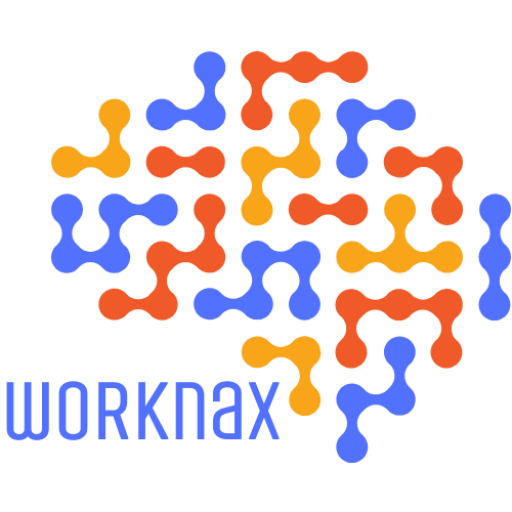Anúncios
In today’s fast-paced world, learning programming in a short timeframe, such as three months, has become an attainable goal for many aspiring developers. With the right approach, resources, and dedication, anyone can gain the foundational skills necessary to initiate their programming journey effectively. This transformation can lead to exciting career opportunities in the tech industry, making it all the more worthwhile.
The first step to successfully learning programming in three months is to establish clear, achievable goals. It’s crucial to determine precisely what you wish to achieve at the conclusion of this period. Are you aiming to build a web application, develop software, or explore the realms of data science? Defining your objectives will guide your learning path and provide the motivation necessary to stay committed.
Next, you should select a programming language that aligns well with your aspirations. Python is often recommended for beginners, primarily due to its readability and versatility. It finds extensive use in web development, data analysis, artificial intelligence, and automation. Alternatively, if web development is your focus, JavaScript is indispensable for creating dynamic and interactive web applications. Choosing the right language sets a strong foundation for your three-month learning journey.
Once you’ve chosen your preferred language, it’s essential to identify reputable learning resources. Platforms such as Codecademy, freeCodeCamp, and Coursera offer interactive courses specifically designed for beginners. Many of these platforms incorporate hands-on projects that reinforce what you’ve learned through practical application. Books and online tutorials can also enhance your understanding, but ensure they are contemporary and detailed with the latest best practices in the industry.
Creating a structured study plan is critical for effective learning. Dedicate consistent blocks of time each day or week to focus exclusively on your programming studies. Breaking your learning into manageable segments makes the entire process feel less overwhelming. For instance, allocate specific days exclusively for learning syntax, exploring libraries, and building engaging projects that showcase your learning.
An essential component of learning programming lies in consistent practice. The more you code, the more comfortable and adept you will become with the language. Start small by working on projects or tackling challenges that pique your interest. Engage with websites like LeetCode, HackerRank, and Codewars, which provide coding challenges to sharpen your skills and enhance your problem-solving abilities through real-world scenarios.
Another impactful approach to learning programming is engaging with the vibrant coding community. Platforms such as GitHub allow you to share your projects, collaborate with others, and receive constructive feedback on your work. Participating in coding forums or online groups can offer additional support and resources. Engaging with like-minded individuals can provide motivation, accountability, and a robust network of assistance when you encounter obstacles.
Utilizing online coding bootcamps can significantly elevate the pace and depth of your learning experience. These intensive courses are typically structured to take you from novice to job-ready within a few months. Bootcamps often emphasize practical skills and real-world applications, providing interactions with instructors and industry professionals that can enhance your skills significantly. This immersive environment is advantageous for fast-tracking your learning process.
As you become more proficient in your programming skills, it’s beneficial to start building a portfolio of projects. Your portfolio will serve not only as a demonstration of your abilities but also as tangible evidence of your growth in the field. Include a diverse range of projects that display various skills you have acquired, such as web applications, automation scripts, and data analysis tasks. This portfolio will be invaluable when seeking internships or job opportunities in the future.
Networking is another crucial aspect of your learning journey that should not be overlooked. Attend local tech meetups, webinars, and conferences to establish connections with industry professionals and other learners who share your passion for coding. Networking can lead to potential job opportunities or mentorship, which is invaluable when starting your career in the tech world. Many successful developers and employers place a high value on personal connections over formal qualifications.
Learning programming necessitates embracing mistakes and setbacks. Debugging is an integral part of coding and often serves as an educational experience. When you encounter errors, invest the time to comprehend what went wrong and the methods to rectify it. This iterative process enhances not only your problem-solving skills but also fosters resilience, an essential trait for any developer thriving in this field.
Once you’ve built a solid foundation in your chosen language, consider contributing to open-source projects. This experience can be enlightening by exposing you to real-world coding standards, practices, and collaborative environments. Contributing to open-source projects also presents opportunities to connect with industry mentors, further enhancing your understanding and skill set in programming.
After devoting three months to focused effort, it is crucial to take a step back and reflect on your progress. Evaluate what you have learned and identify areas where you may still require improvement. Continuous learning is key in programming since technology evolves at a rapid pace. Set new goals to further develop your skills, whether that involves learning a new programming language or exploring advanced concepts in your current field.
Consider exploring formal education options as well. Enrolling in structured classes at a community college or university can provide a more disciplined and comprehensive approach to learning. This option offers valuable access to experienced instructors who can provide immediate feedback on your work, substantially enhancing your overall learning experience.
To explore real-world applications of your skills, focus on building a capstone project. This project should incorporate everything you’ve learned and effectively demonstrate your capabilities. Choose a project that genuinely excites you, and challenge yourself to implement more advanced concepts as you grow. A well-executed capstone can serve as an impressive centerpiece in your portfolio, further showcasing your skills to potential employers.
Don’t forget to document your journey and experiences throughout the learning process. Keeping a blog or journal detailing what you learn each day serves multiple purposes: it solidifies your understanding and acts as a reference point in the future. Furthermore, sharing your experiences can inspire others who are on a similar learning path and help you connect with a wider community of learners and developers.
Moreover, leverage social media platforms to follow tech influencers, experienced developers, and educators within the programming community. Their posts can provide valuable insights into the latest industry trends, tools, and best practices. Engaging with these communities can also expose you to new perspectives and methodologies, enriching your overall learning experience.
Time management plays a vital role in successfully learning programming within three months. Utilize productivity techniques such as the Pomodoro Technique to maximize your focus during study sessions. Taking regular breaks can significantly improve retention while preventing burnout, ensuring that your learning remains enjoyable and effective over time.
Regularly reviewing your progress and adjusting your study plan as necessary is essential. If you find a particular topic challenging, don’t hesitate to allocate additional time to reinforce that area. Adopting a flexible learning approach enables you to adapt to your evolving needs and ensures that you are continuously making meaningful progress.
It’s paramount to remember that your programming journey does not conclude after three months of intensive learning. The tech field is ever-evolving and progresses rapidly, making continuous learning essential for maintaining relevance in the industry. Embrace the philosophy of lifelong education, whether that means enrolling in online courses, reading widely, or actively participating in community events related to programming.
In conclusion, learning programming in three months is an achievable goal when approached with the right mindset and strategies. Clearly define your goals, select the appropriate language, and dedicate time daily to both practice and learn. Embrace mistakes as a part of the learning curve, engage with the community, and build a robust portfolio that showcases your expanding skill set. As you navigate this ongoing journey, maintain flexibility, document your progress, and nurture your passion for coding. Your unwavering commitment to learning can open the doors to exciting career opportunities in the dynamic tech industry. With perseverance and determination, you can indeed carve out a successful future in programming that awaits on the horizon.



